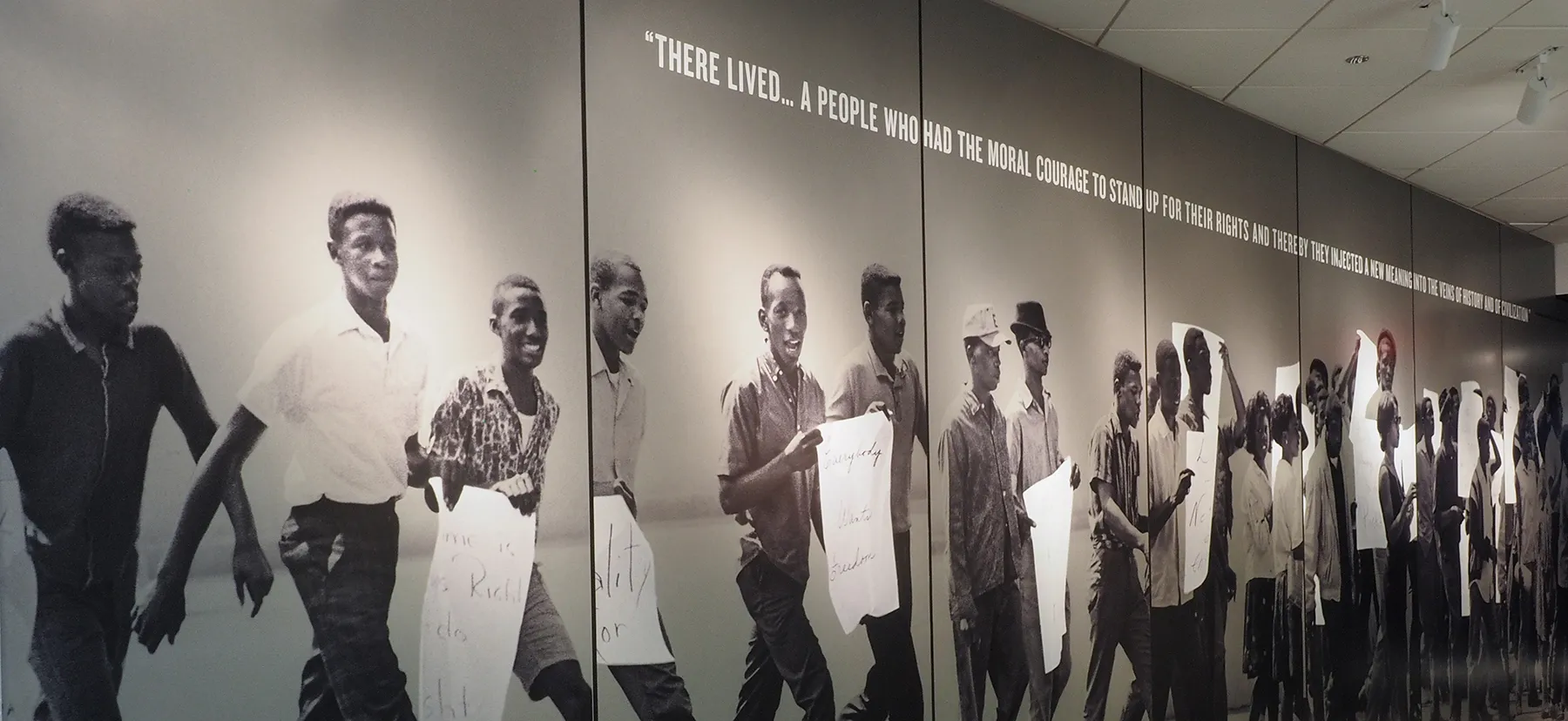Help Us Preserve History: Donate or Loan Artifacts
Be a part of the National Civil Rights Museum’s legacy. We welcome your generous donations and loans of archival materials, books, photographs, clothing/textiles, audio/visual items, fine art, and historic objects.
These artifacts become powerful tools for History Moves Us Forward, our mission to educate and inspire future generations. Your contribution ensures these stories of the Civil Rights Movement, African American history, and culture are preserved and shared with the world.
The Museum is actively seeking donations related to the following themes
Local and national civil and human rights organizations
Contemporary civil and human rights movements like:
- Movement for Black Lives/Black Lives Matter
- LGBTQIA+ movements
- Latinx movements
- Indigenous movements
- Feminist movements
Please read our Frequently Asked Questions section to learn information about our donation process then complete our Collections Inquiry form. If you are unable to complete the online form, please contact collections@civilrightsmuseum.org to request that a form be mailed to you. Please do not send objects to the Museum without prior consent.
Submit an Inquiry
Frequently Asked Questions
Please complete our Collections Inquiry form. The collections staff will evaluate the potential donation and contact the donor within a reasonable time to discuss next steps.
Yes, the Museum accepts objects that reflect movements for civil and human rights across the globe that meet our mission.
Yes, the Museum accepts art into the collection.
Yes, the Museum purchases objects on a case-by-case basis. The Museum’s acquisitions budget is limited; therefore, the objects must be affordable and meet specific needs.
Yes, we are open to receiving donations that tell the full unadulterated story of the struggle for civil and human rights.
In accordance with regulations from the Internal Revenue Service (IRS), the National Civil Rights Museum does not offer appraisal services or provide donors with a value for tax- deductible objects. We suggest contacting a certified appraiser in your area if you require an appraisal.
The Museum is a qualified charitable organization, thus the fair market value of your donated materials is generally tax deductible. To take advantage of your deduction, you must file form 1040 and, depending on the value of your donation, tax form 8283. To ensure that you receive the maximum tax benefit, it is recommended that you consult with your own accountant, attorney, and/or the Internal Revenue Service. You may also consult Internal Revenue Service Publication No. 526, Charitable Contributions, and Publication No. 561, Determining the Value of Donated Property.
No, the Museum will not accept unsolicited objects through mail or in person without prior contact with the Museum’s collections staff. Any objects sent without prior written consent will not be returned and may be disposed.
Please note that front lines staff cannot accept any donations to the collection. Items brought to the Museum without prior arrangement will be turned away.
The Museum cannot guarantee that any donation will be on display in an exhibition. As with most museums, only one percent of the Collection can be on display at any one time. Objects that are not on display are still appreciated and are accessible to researchers for study.
Access to the Museum’s collection is limited and available to researchers by appointment only. Please complete our Collections Inquiry form to request an appointment.
The Museum actively loans its collection for exhibition and educational programming to OTHER museums and historic institutions. It also welcomes incoming loans from institutions and private lenders. Please complete our Collections Inquiry form for any loan inquiries.
Most scans and digital images created on home equipment are of too poor quality to be useful for the Museum. Therefore, the Museum will rarely accept copies of documents and photographs and will be reviewed on a case-by-case basis.
The Museum will occasionally accept original digital photographs that have been shot using digital cameras, providing they meet the collections scope, are accompanied with metadata, and copyright issues have been resolved.
